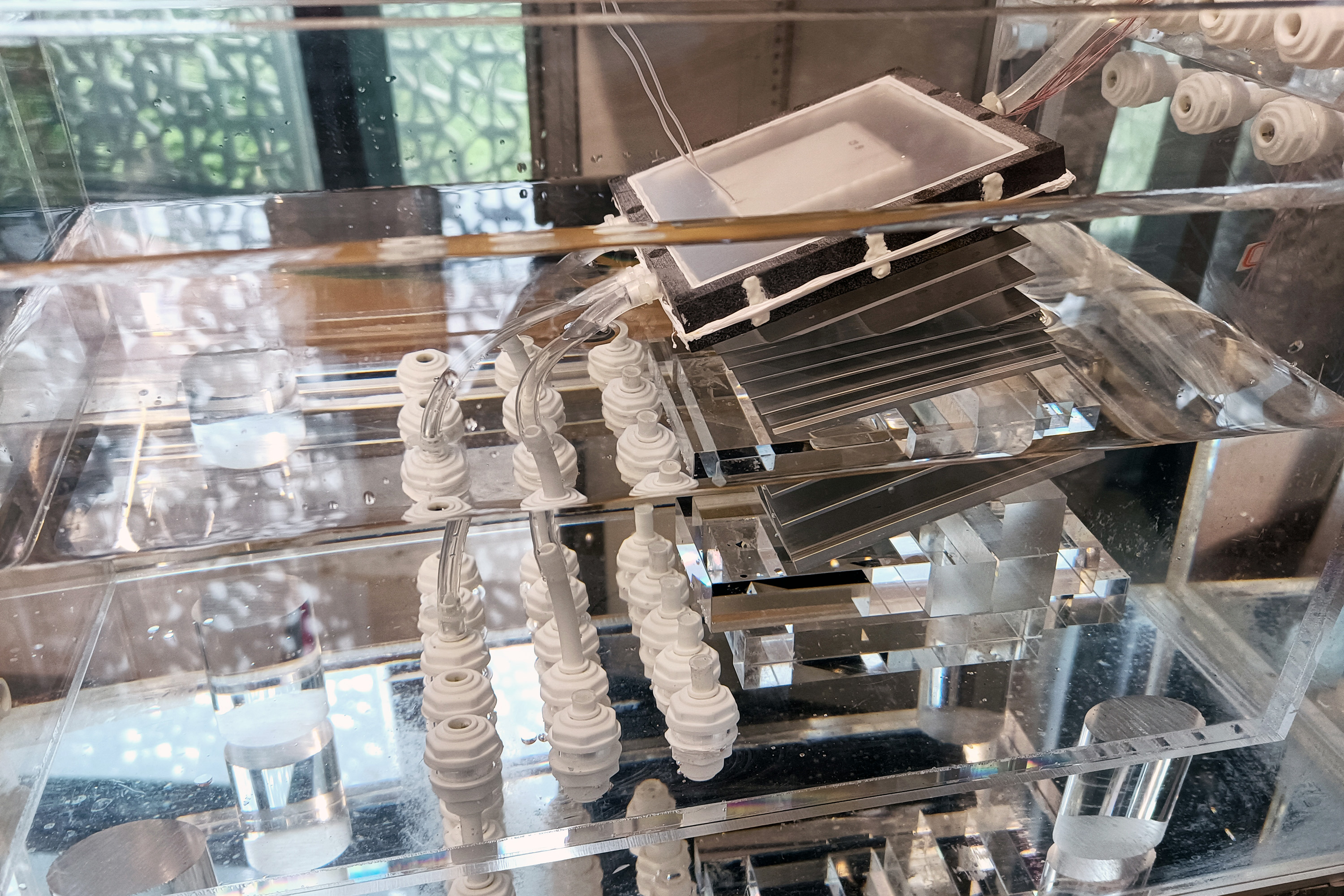Engineers at MIT and in China are aiming to turn seawater into drinking water with a completely passive device that is inspired by the ocean, and powered by the sun.
In a paper appearing today in the journal Joule, the team outlines the design for a new solar desalination system that takes in saltwater and heats it with natural sunlight.
The researchers estimate that if the system is scaled up to the size of a small suitcase, it could produce about 4 to 6 liters of drinking water per hour and last several years before requiring replacement parts. At this scale and performance, the system could produce drinking water at a rate and price that is cheaper than tap water.



If this works, it’s better than anything we have , which costs grid energy and dumps brine all the same. If anything, the smaller scale makes it easier to distribute and dilute the output brine.
If sea levels rise as much as they’re supposed to, this will be an invaluable tool for an enormous proportion of the country. My concern comes from capitalism getting its hooks into this.
Wait what country?
Which country are you referring to?
Capitalism bad, sure, but you can’t deny it has a way of making things scalable and affordable. If some venture co started the infrastructure to mass produce this stuff and make it possible for everybody to afford it would it be that bad?